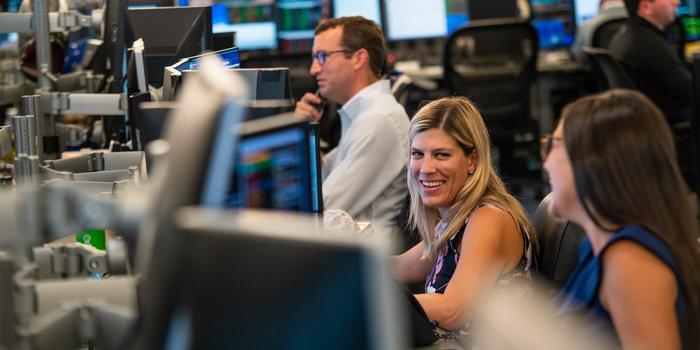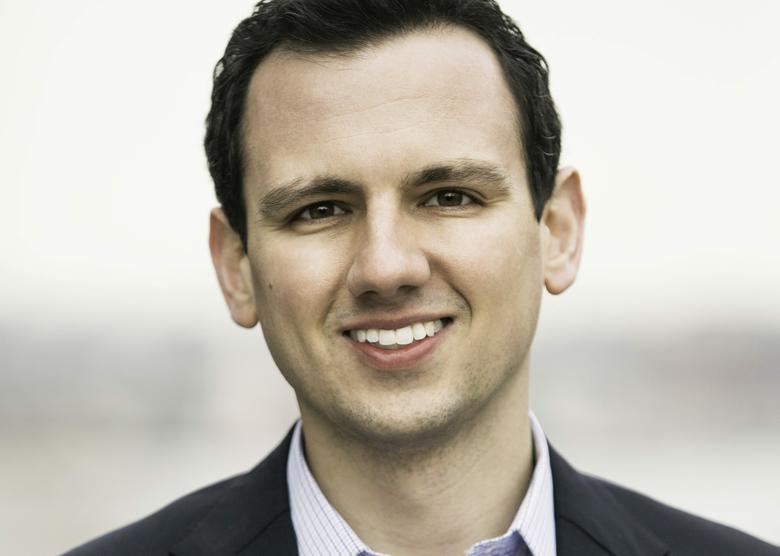
Unless you’re a trader or you work in fixed-income markets, there’s a good chance Tradeweb will be unfamiliar to you. But for the last 20 years, the firm has been changing the way that institutions, advisors, and other investors buy and sell the bonds and other obligations in the $100 trillion-plus global fixed-income markets.
Unlike stocks, the debt securities issued by nations, municipalities, states, and corporations don’t trade on a stock exchange like the Nasdaq or New York Stock Exchange. But new technology is still remaking the way these markets operate—and Tradeweb is at the forefront of that push.
In essence, Tradeweb is an electronic platform that brings together traders and investors, says Caius Howcroft, Managing Director, Head of Infrastructureand Data Platform Services. Like many rising tech powers, Tradeweb takes advantage of the exponential growth offered by the “network effect”—in which a system becomes more effective as more people use it—to create new efficiencies and transform their industry. “People really value that we can bring more market participants together,” Howcroft says.
But traders today need more than just the ability to execute trades, and they need more than just data. They need tools to help them sort through oceans of market data in a way that’s both fast and meaningful, Howcroft says. And that’s his latest focus.
There’s no doubt that Tradeweb is making waves. (Just take a look at its $1.1 billion IPO last year.) And as more business in the financial markets moves online, the current COVID-19 crisis is only adding to the company’s relevance and prominence in the markets, says Stefan Kutko, Managing Director of Institutional Technology.
The View From the Cutting Edge
Howcroft’s drive for innovation comes from personal experience. Early in his career, he was a quant analyst. Working with only stocks at that point in his career, he identified problems with existing data services even then. While there was no shortage of good investing ideas, it took too long to program those ideas into software models and test them against past market results. Now, Howcroft is modernizing Tradeweb’s data infrastructure to make it API-driven and on-demand.
Kutko, meanwhile, is focused on making the whole Tradeweb system more supple and adaptable. He’s managing Tradeweb’s shift to what’s called a “microservices platform,” which is becoming the standard for much of the emerging fintech world.
A micro-services platform differs from software that’s designed as a single monolithic application in important ways. The platform is designed to be tested, updated, deployed, and fixed in discrete sections. That makes it more cloud-friendly and speeds up the rate at which it can change and upgrade, Kutko explains.

A Culture of Collaboration
Coming into a massive but underserved market with innovative technology may seem to be all you’d need for success on the scale of Tradeweb. But it doesn’t work without the right culture. And it’s the culture at Tradeweb that both Howcroft and Kutko point to as the secret ingredient.
“The office culture is very collegial, very collaborative,” Howcroft says. “It’s a place with opportunities to try new things across the organization. I’ve been part of just about every part of the business in my time here.”
Kutko notes that while the technology team is based in Jersey City, he spent two days a week in midtown Manhattan before the COVID-19 pandemic hit. That gave him direct access to the traders and salespeople, and a better sense of what Tradeweb clients wanted from the platform.
“We don’t take an ivory tower approach to software design. It’s extremely collaborative across all business units,” he says. “That feedback keeps us on target with what traders need. The social aspect is how you learn so much.”
While working from home, Tradeweb staffers have found ways to keep that social environment alive in the form of Zoom meetings and company-sponsored virtual happy hours, Howcroft says, allowing for serendipity and productive ad-hoc conversations.

The Next Generation and Beyond
“There’s a lot of work to do,” Kutko says.
That’s an understatement. In many ways, the world of fintech is an arms race. Not only do you have to compete with new companies in the arena, but you also have to keep updating and upgrading to keep up with the newest cyber-threats and software breakthroughs.
To stay ahead, companies must recruit the best possible talent, which can sometimes be a challenge, as the path from top science and engineering programs to financial services isn’t necessarily obvious. Howcroft himself got his PhD in particle physics from the University of Cambridge, then spent years in research before finding a home in finance.
Kutko, on the other hand, had an interest in the markets at a young age, opening an online brokerage account with his father when he was in the seventh grade. At the time, the dot-com bubble was rapidly expanding, and every stock he bought went up, up, up. But soon, the bubble burst, and he learned a hard lesson. “I realized I should stick to the technology side,” he says.
Bringing his twin passions of technology and the markets to Tradeweb just made sense to Kutko. One important reason: The firm is well past the challenges of an average startup, with name recognition, industry-wide trust, and a massive network, he says. “Because we’ve overcome those hurdles, we can build things no one else can. The opportunity for growth and expansion is apparent to everyone.”